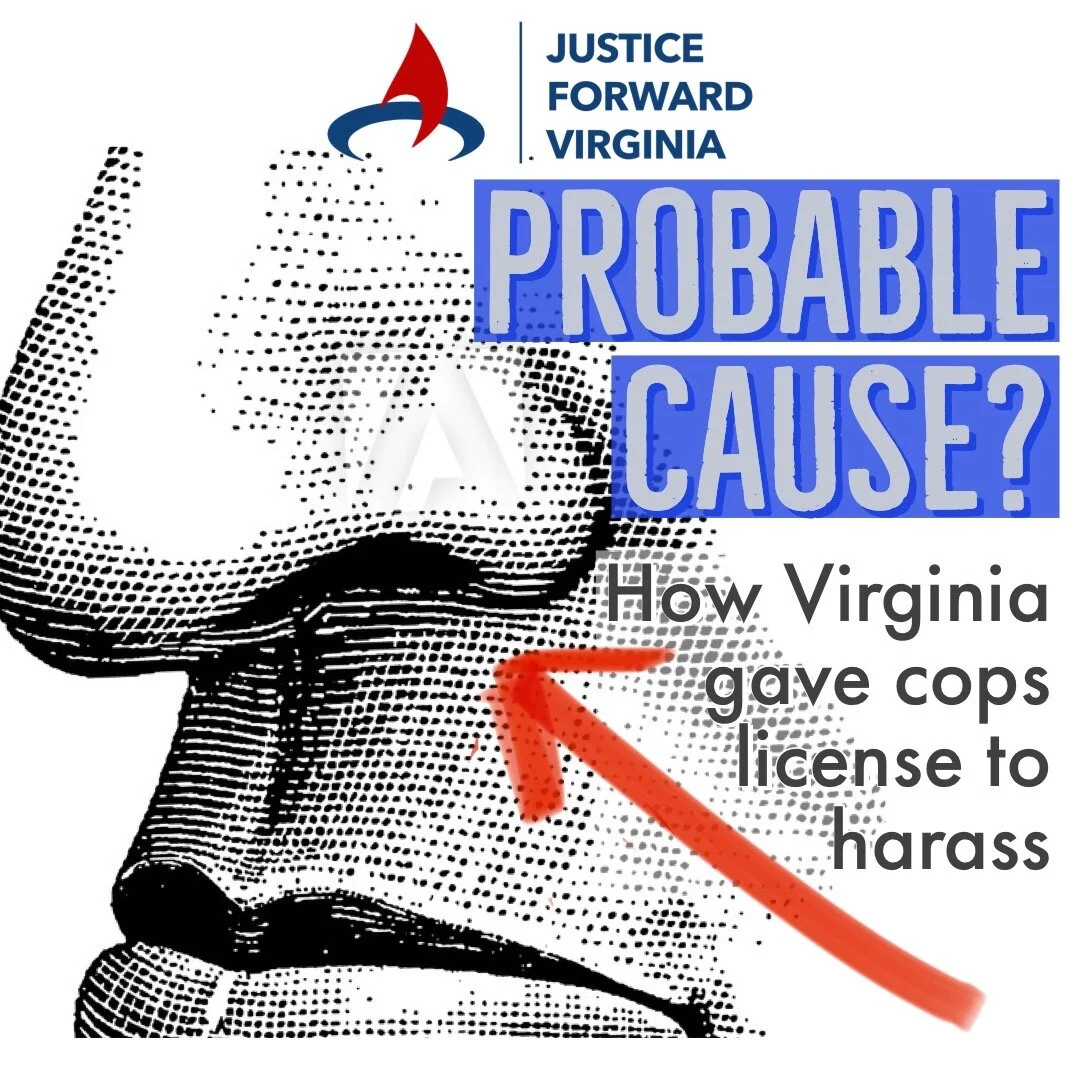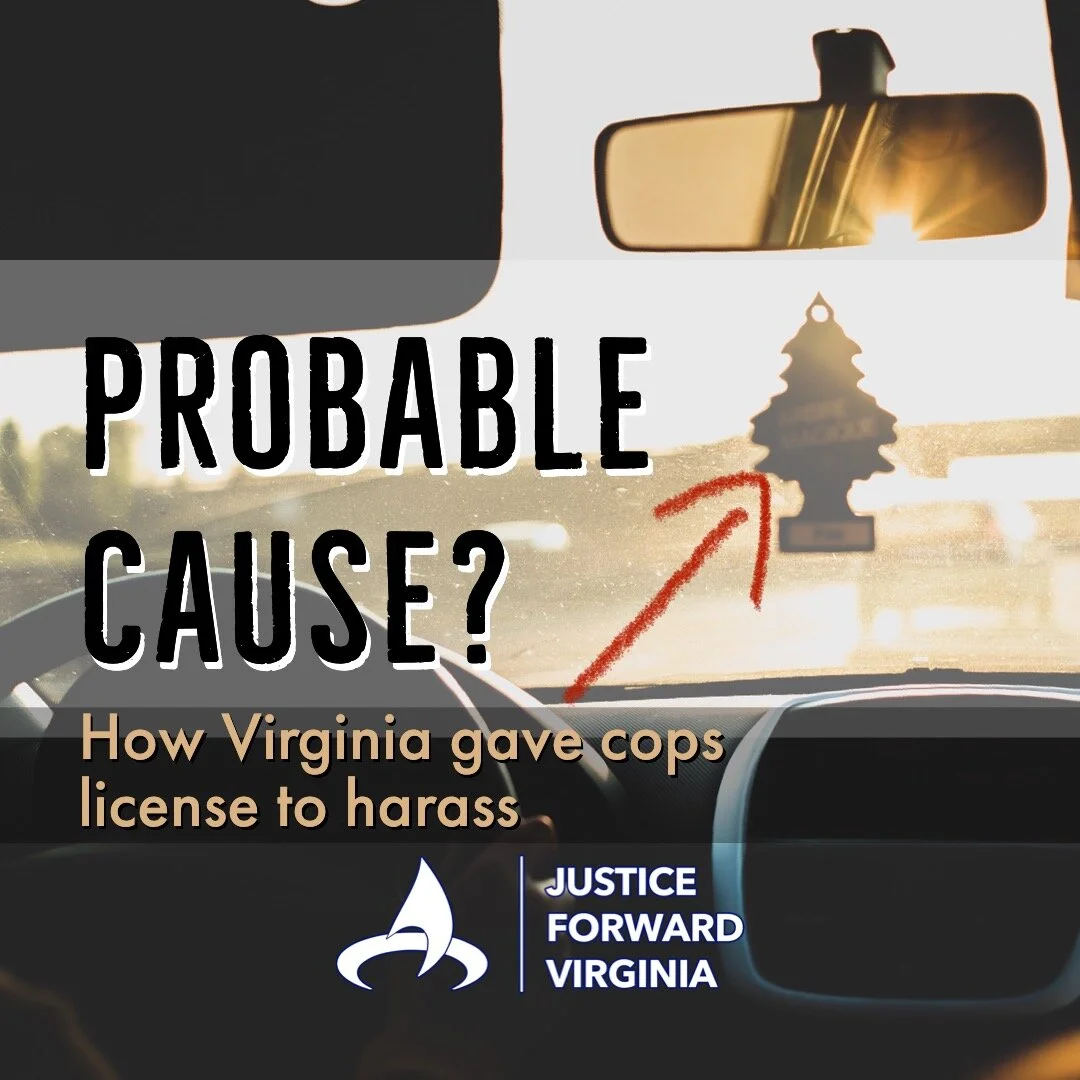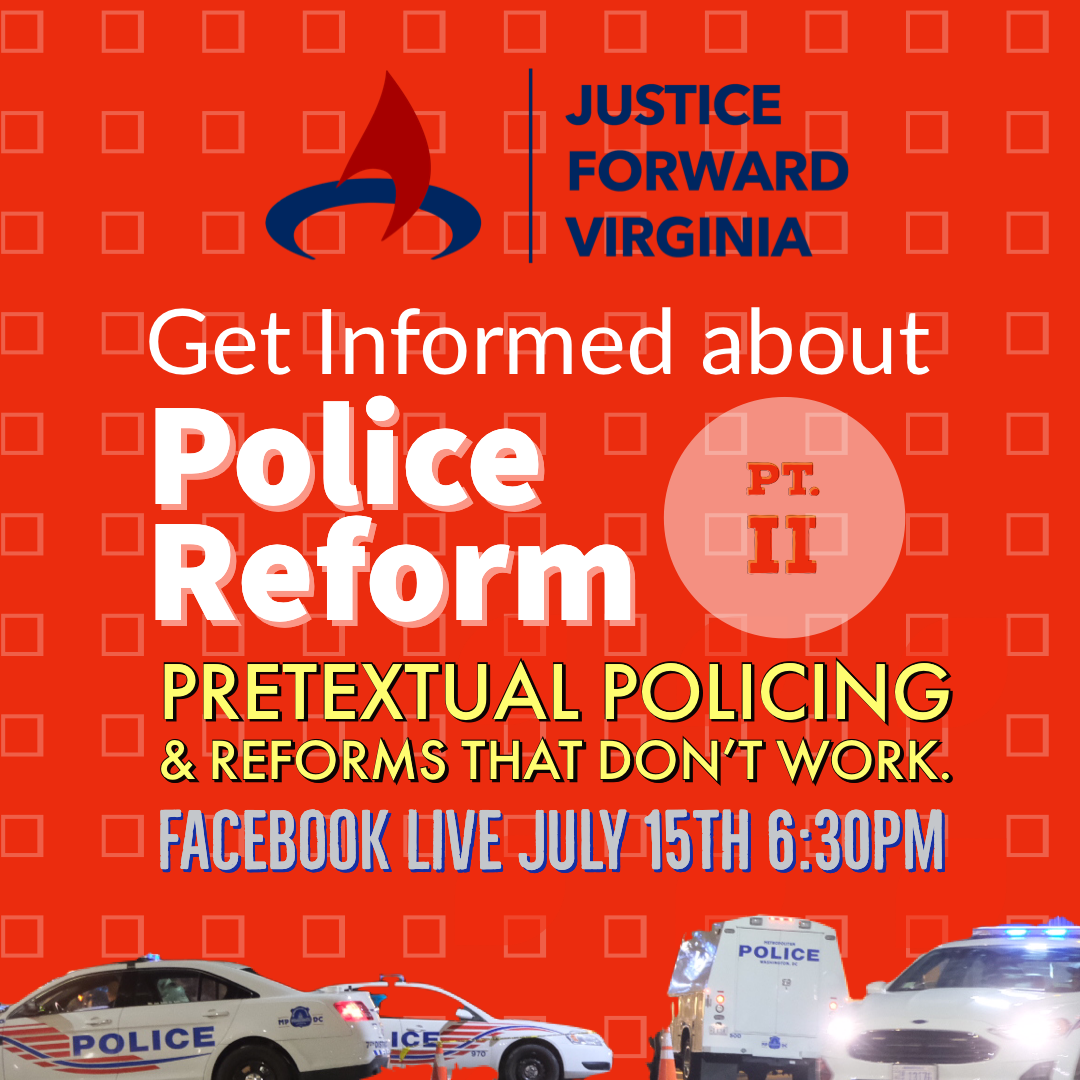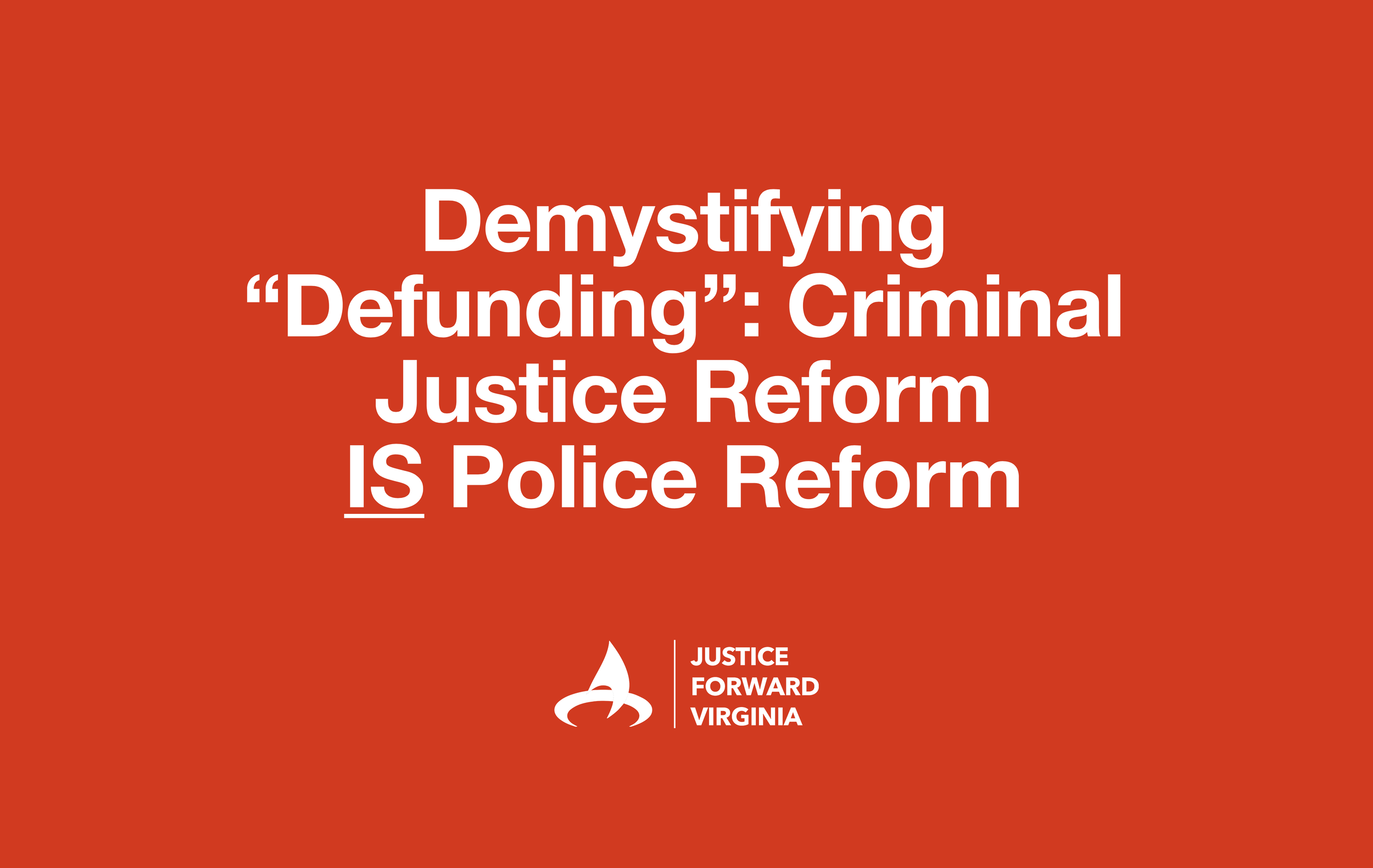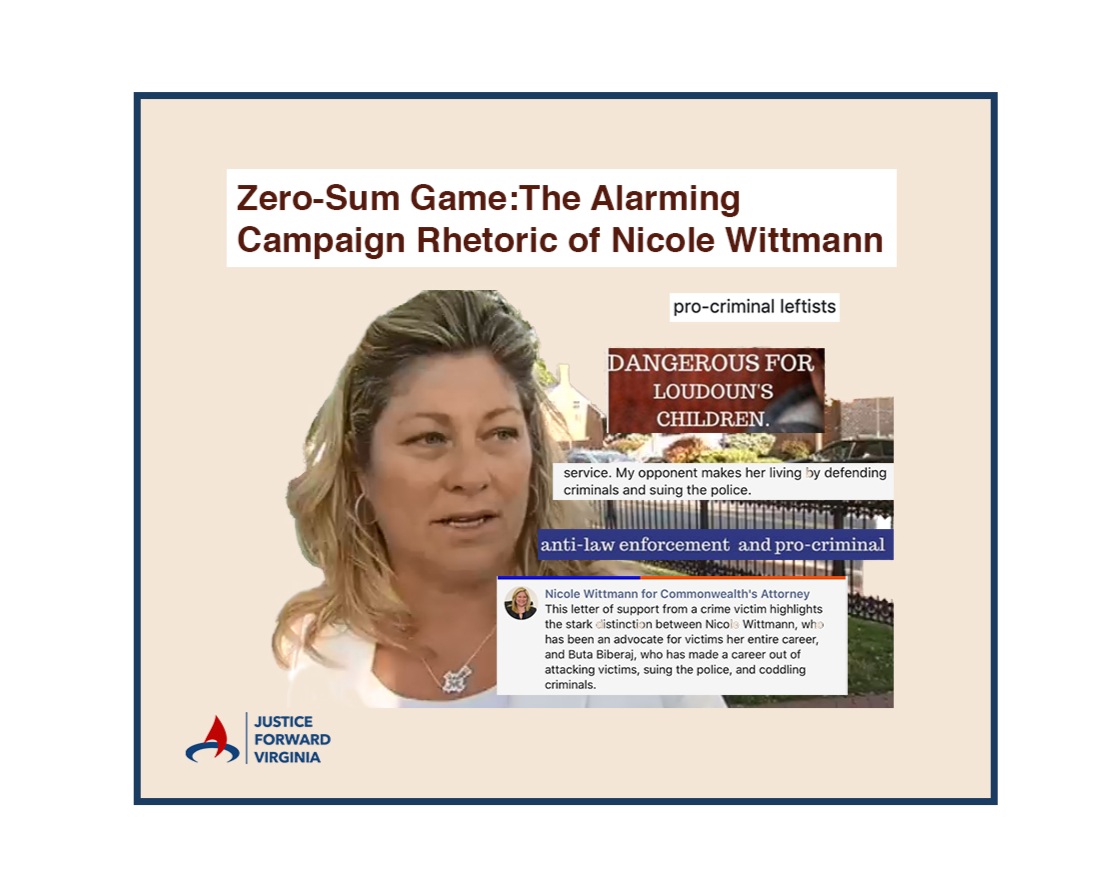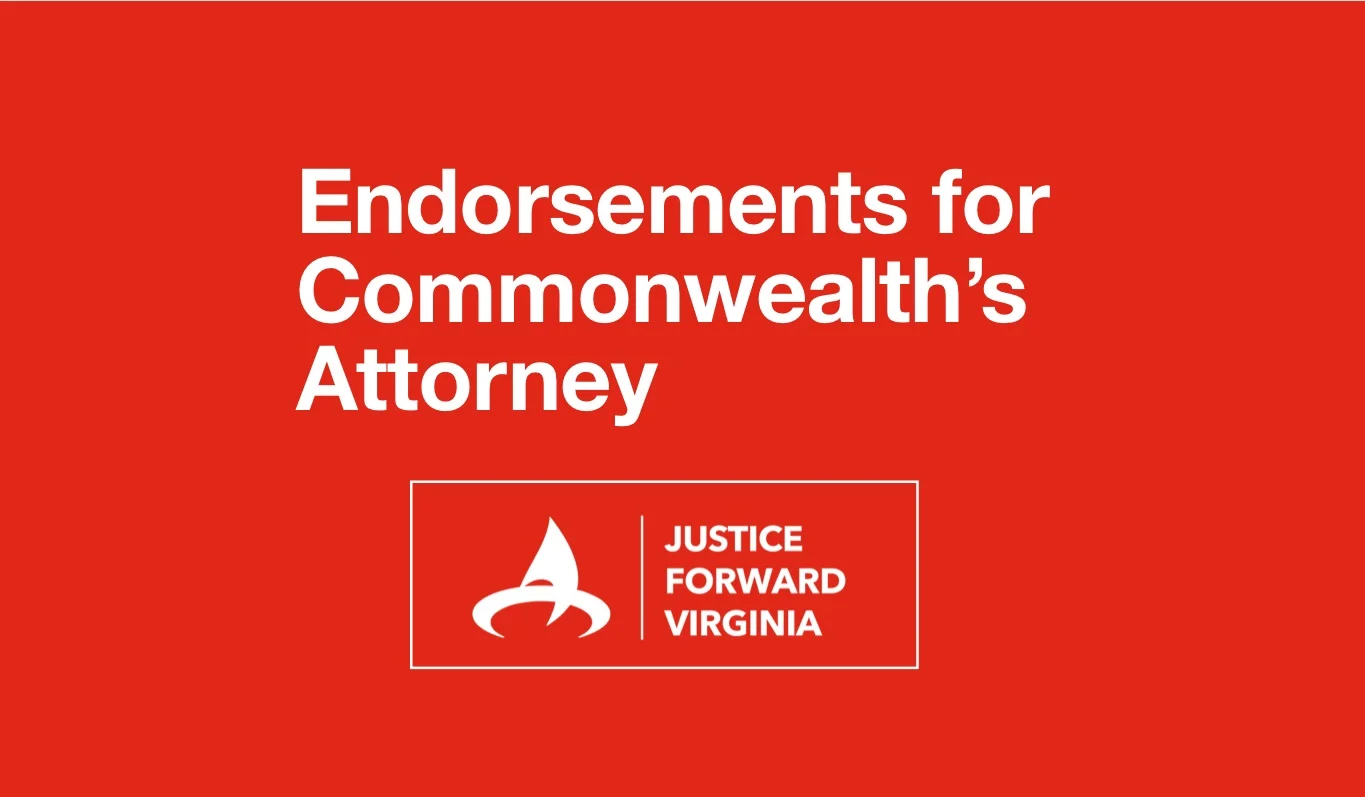Virginia law limits what punishments jurors are allowed to recommend. They can’t recommend alternatives to jail or fines - including probation, treatment, rehabilitation, or community service. This practice is unfair to both juries and to defendants and should be changed.
Read MoreOn July 28, join Professor Julie McConnell and public defenders Brad Lindsay and Ashley Shapiro for an expert panel on why school resource officers are so problematic, and why Virginia's assault on police statute is much more controversial than the name would imply.
Read MorePart III of Justice Forward Virginia’s “explainer” series on criminal justice issues is Civilian Oversight Done Right: Transforming Policing Through Robust Civilian Review. We've assembled almost ALL of the statewide experts on this subject: Fairfax NAACP, Legal Aid Justice Center, and the Richmond Transparency and Accountability Project. Don’t miss this one!
Read MoreVirginia’s current law allows prosecutors to force a defendant into a jury trial, which means a jury sentence, if convicted. Sentencing ranges often require juries to give a minimum sentence that don’t apply to judges and juries are not allowed to be told about or recommend alternatives to incarceration, such as probation, drug or mental health treatment, or community service. A simple change that allows defendants to choose sentencing by a judge is one step toward a more fair system.
Read MoreIn Virginia, law enforcement operates under a shroud of secrecy with far less democratic accountability than our other public institutions. Civilian Oversight Bodies (sometimes referred to as Civilian Review Boards or “CRBs”) in Virginia are limited in power under current state law. Police departments are able to control the Oversight Bodies’ access to the data, evidence, witnesses, and personnel files that they need for meaningful oversight.
Read More“I smell marijuana.”
Three magic words with the power to make constitutional rights disappear.
Merely uttering those three magic words gives any police officer in Virginia the power to search your house, your car, your briefcase, your pockets, or even your body, without a warrant or your consent.
Read MorePretextual policing is the practice of stopping someone for a minor traffic violation in order to conduct investigations unrelated to the reason for the stop. In Virginia, there is an extraordinarily low standard under the law, and it’s often abused.
Read MoreVirginia’s Assault on a Law Enforcement Officer statute makes what is often a minor offense a felony and has a mandatory minimum sentence of 6 months in jail. This statute’s elevated punishment structure has other troubling effects on the criminal justice system: (1) It gives the police officer extraordinary power to punish those who insult or otherwise defy them, including people of color who are victims of excessive force, and (2) It intimidates the accused into taking plea offers in cases where the accused would prefer to take the case to trial.
Read MoreJoin us on July 15 at 6:30 for Part II of our ongoing series when experienced Virginia criminal defense attorneys will drill down on pretextual policing, and will also discuss some of the popular police reforms that do NOT work.
Read MoreThankfully, Virginia lawmakers have a second chance in 2020 to make good on campaign promises to make meaningful changes to our criminal justice system. Leaders of both chambers of the General Assembly have confirmed that fundamental reforms simply cannot wait.
Read MoreWith police reform in the spotlight, there have been dozens of criminal justice reform events recently. Unfortunately, too few of them help laypeople understand the issues the way advocates do. We’re here to help! Join JFV, Sen. Scott Surovell and Del. Don Scott on July 7.
Read MoreDo you have expertise in Virginia criminal law, police reform, or criminal justice reform? Do you have graphic design skills to help attract attention to our important cause? We need your help!
Read More“Defunding the police” is much less controversial than the term would suggest. It simply means reducing the role police and prisons serve in society while expanding services that make communities healthier, safer and more equitable. It is a recognition that the traditional model of arrest, prosecution and incarceration simply isn’t working, and that comprehensive reforms to our justice system are imperative.
Read MorePublic health experts unanimously warn of the potential for jails and prisons to serve as COVID-19 amplifiers and incubators, and the immense risk that entails for correctional employees, detainees, and the general public. Unfortunately, Virginia isn’t doing nearly enough to mitigate these risks.
Read MoreJoin Justice Forward on Dec. 11, 2019 for our NoVa Criminal Justice Reform Pep Rally, at Clare and Don’s Beach Shack in Falls Church, VA.
Read MoreThere’s no skipping steps when it comes to the legal system. Virginia must start by fixing some of its low-level problems — this is Criminal Justice Reform 101.
Read MoreMore and more as election day approaches, Wittmann seems to be laying bare her true feelings about the people she prosecutes and those entrusted with the obligation to represent them, in a manner that calls into question her fitness for the office she seeks.
Read MoreCommonwealth’s Attorneys are the most powerful individuals in your local justice system. Learn who we support and why in the upcoming prosecutor elections in Arlington, Loudoun, Fairfax, Prince William, Albemarle and Chesterfield.
Read More






